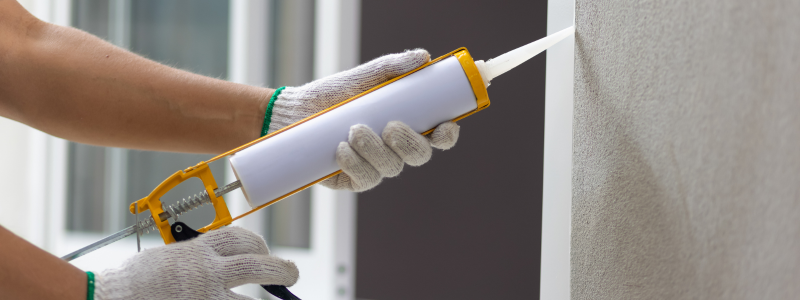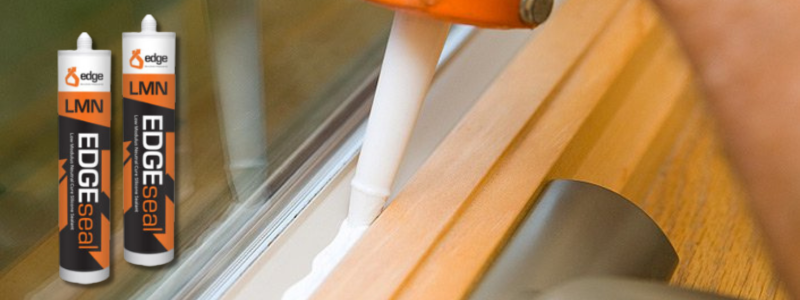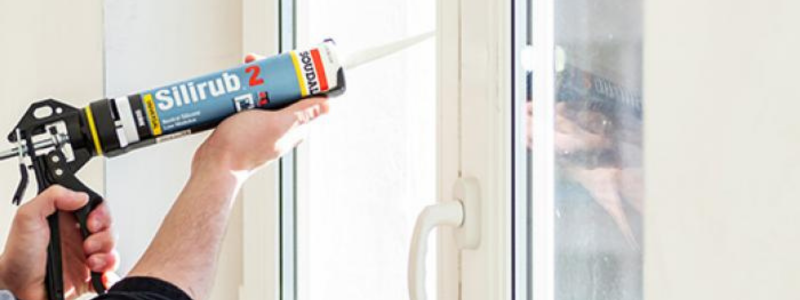
With so many different silicones on the market, it can be difficult to know which one you actually need. Fancy branding can lead you to think that every tube is made the same, but there are some crucial differences that are good to know. In this blog, we will be offering a helpful guide to the different grades of sealants available so you can pick the right tube for your project.
Why choose silicone?
Silicones are used to create a watertight, or airtight, seal between two surfaces. This is not the same as an adhesive, which creates a much stronger, immovable bond between two surfaces. The silicone is designed to prevent any debris from falling between the surfaces by sealing any gaps and offers a weaker connection than regular adhesives.
When first applied, the silicone will have a liquid, gel-like consistency. This makes it easy to apply across tiles or window boards, and then to smooth the joint with a sealant finishing tool. Once the sealant begins to cure it dries to robust, rubber-like consistency.
Silicone is popular because it is often easy to use and apply and offers a durable yet flexible final cure. The curing process is fuss-free and the new joint is long-lasting.
High Modulus Silicone
If you are looking for a fast cure, a high modulus silicone may be the option for you. Most high modulus silicones have an acetoxy formula, meaning they release acetic acid while curing. This allows the cure to be faster but does emit a slightly vinegary smell during the curing progress. Acid cure silicones are great for non-porous surfaces such as glazed tiles and glass.
Top tip: Silicone curing times will vary depending on the composition of the product, and the brand. Temperature and humidity also have a significant impact on silicone curing times.
Low Modulus Silicone
The acidic formula of a high modulus silicone is not suitable for PVC surfaces, and so a low modulus silicone would be the best choice. Low modulus silicone often have a neutral cure, meaning that they do not have an acidic base. As a result, these silicones have a slightly slower curing time but are often low odour products. The slower cure time also means that the cured silicone creates a more flexible and elastic seal than a high modulus cure.
Top tip: When completing works in bathrooms or high moisture rooms, sanitary silicones are the best choice. These wet application silicones are more resistant to mould and mildrew growth than regular sealants.

Finding the right silicone for your project.
Whether you know exactly which product you need or could do with some advice, the best place to go is a building supplies trade counter. Here at Edge, we have trade counters in Chichester, Horsham, and Croydon, and our helpful branch staff are ready to help you find the right sealant for your job.
If you are looking for a reliable, low modulus silicone for PVC applications, we maintain high stock of silicone. Available in both white and clear, this smooth silicone has a neutral cure and is perfect for perimeter sealing in glazing applications.
Although white and clear silicones remain the most popular choice, there is a great array of colour options available. For example, the Soudal Silirub Colour collection features a range of colours such as Basalt Grey, Grey Aluminium, Brown and Silver Grey to match the surfaces being joined together.
Looking for silicone with adhesive properties? Hybrid products such as the Soudal FixAll range offers the strong connection of an adhesive product with the watertight properties of a sealant.
Get in touch with us.
Explore our great range of silicones online, or by visiting our trade counters. Get in touch with us by calling 0345 021 3333 or emailing [email protected] to discuss your requirements. Looking to buy in bulk? Our Sales Reps travel throughout the South East to get you discounted pricing on the sealants you use the most.



 My Basket
My Basket